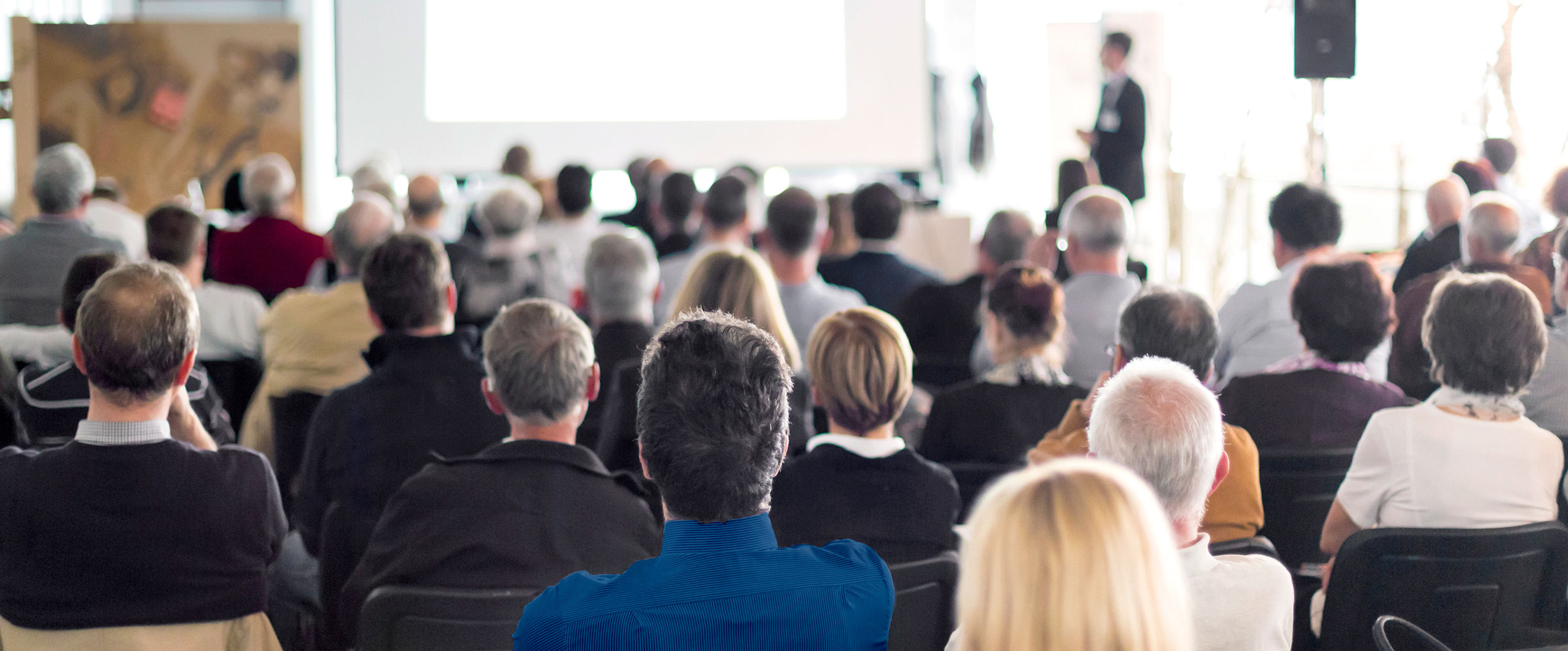The conference is open to all areas of microsimulation, including static and dynamic microsimulation, agent-based models, behavioural models, and all applied and methodological contributions related to microsimulation. Moreover, there will also be thematic streams during the conference (organised together with partners in brackets):
- Labour markets and welfare policies (Dr. Kerstin Bruckmeier, Institute for Employment Research IAB)
- Comparative analysis on taxes and benefits (Salvador Barrios, PhD, Joint Research Centre, European Commission)
- Dynamic microsimulation (Prof. Ralf Münnich, MikroSim FOR2559)
- Health (Ieva Skarda, PhD, Centre for Health Economics at the University of York)
- Agriculture and environment (Prof. Cathal O’Donoghue, National University of Ireland, Galway; University of Maastricht)
Termin
18.7.2022 - 19.7.2022
Ort
Institute for Employment Research (IAB)
Regensburger Str. 100 and
Bundesagentur für Arbeit (BA)
Regensburger Str. 104
D-90478 Nuremberg, Germany
Keynote Speakers
- Salvador Barrios, PhD, Joint Research Centre, European Commission, Seville
- Karina Doorley, PhD, Economic and Social Research Institute, Dublin
- Prof. Dr. Ralf Münnich, University of Trier, Germany
Wissenschaftlicher Ausschuss
- Prof. Robert Tanton (University of Canberra, president of IMA, Australia)
- Salvador Barrios, PhD (Joint Research Centre, European Commission, Spain)
- Dr. KerstinBruckmeier (Institute for Employment Research IAB, Germany)
- Dr. Gijs Dekkers (Federal Planning Bureau Belgium FPB, Belgium)
- Prof. Ralf Münnich (University of Trier, Germany)
- Prof. Cathal O’Donoghue (National University of Ireland, Galway; University of Maastricht)
- Prof. Andreas Peichl (University of Munich, ifo Center for Macroeconomics and Surveys, Germany)
- Prof. Matteo Richiardi (University of Essex)
- Ieva Skarda, PhD (Centre for Health Economics at the University of York, UK),
- Dr. Denisa Sologon (Luxembourg Institute of Socio-Economic Research LISER, Luxembourg)
Programm
DAY 1, 18.07.2022
11:00-13:00: Registration, Lunch
13:00-13:15: Welcome & Official Opening
13:15-13:45: Keynote Address: Salvador Barrios, PhD, Joint Research Centre, European Commission, Seville
13:45-14:15: Keynote Address: Karina Doorley, PhD, Economic and Social Research Institute, Dublin
14:15-15:00: Round-Table Discussion: How does modelling best support policy? Experiences from the Corona crisis and beyond
15:00-15:30: Coffee break
15:30-17:00: Parallel Sessions 1
- Labour markets and welfare policies
- Kazım Okan Erol „Inecome Inequality and Redistribution: A Microsimulation Analysis for Turkey“
- Rick Glaubitz „The impact of taxes and welfare benefits on lifetime earnings and lifecycle dynamics in work incentives“
- Cathal O’Donoghue „Using Microsimulation to impute Historical Income Distributions from 1955 to 2018“
- Dynamic microsimulation
- Monika Obersneider „Dynamic Microsimulations of Regional Income Inequalities in Germany“
- Sarah Bohnensteffen „Modelling local level housing demand based on the Multi-sectoral Regional Microsimulation Model (MikroSim)“
- Comparative analysis on taxes and benefits
- Jussi Tervola „Smaller net or just fewer to catch? Disentangling the causes for varying extents of minimum income schemes“
- Paul Dutronc-Postel „Microsimulating tax-and-benefit-system evolutions over a political term — Evidence from France“
17:00-18:30: Parallel Sessions 2
- Dynamic Microsimulation
- Philippe Liégeois „Validation of Dynamic Microsimulation Models“
- Jan Weymeirsch „External and Internal Validation of Dynamic Microsimulations in the context of the MikroSim Project“
- David Morávek „Evaluation of the population microsimulation model created from synthetic microdata: A case from the Czech Republic“
- Health
- Jannek Mühlhan „Avoiding the avoidable: Simulating long-term population changes in Germany without avoidable mortality“
- Rolf Moeckel „The health benefit of walking and cycling and health harms from he exposure to noise and gaseous emissions“
- Christoph Frohn „Dynamic Microsimulation Modelling of Health Inequalities in Germany: Scenarios on the elderly population“
19:00: Conference Dinner: Gutmann am Dutzendteich (https://www.gutmann-am-dutzendteich.de/)
DAY 2, 19.07.2022
8:00-9:00: Registration
9:-10:30: Parallel Sessions 3
- Labour markets and welfare policies
- Judith Niehues „Assessing new methods to timely estimate distributional effects of economic crises“
- Stijn Van Houtven „Details matter for policy evaluation: the case of Covid-19 in Belgium“
- Chen Gong „Decomposition of the changes in household disposable income distribution in China“
- Dynamic microsimulation
- Martin Palm „A confidentiality concept for a simulation data centre“
- Tomáš Miklošovič „Modelling the demand for teachers“
- Sebastian Dräger „The Influence of Family Demographic Processes on the Development of the Need for Long-Term Care“
- Comparative analysis on taxes and benefits
- Francesco Figari „EUROMODspatial Italy: a new model to evaluate the fiscal and distributional impact of public policies at local level“
- Enrico Longo „EUROMOD and E3ME: a micro-macro approach for the evaluation of fiscal policies“
10:30-11:30: Keynote address: Prof. Dr. Ralf Münnich, University of Trier, Germany
11:30-13:00: Lunch
13:00-14:00: Parallel Sessions 4
- Comparative analysis on taxes and benefits
- Tanja Kern „Exploring redistributive elements of the Swiss Pension system: An unconditional quantile treatment analysis“
- Justin van de Ven „Dynamic simulation of taxes and welfare benefits by database imputation“
- Labour markets and welfare policies
- Diego D’Andria „Universal, targeted or both: Effects of different child support policies on labour supply and poverty – A simulation study“
- Marco Di Marco „Personal tax reform and universal child allowance in Italy“
14:00-15:00: Panel Session „Leveraging the power of open source for microsimulation: GETTSIM and beyond“: Prof. Hans-Martin von Gaudecker, University of Bonn, Germany
15:00-15:30: Coffee break
15:30-17:00: Parallel Sessions 5
- Labour markets and welfare policies
- Maximilian Blömer „Recent Trends in Labor Supply Preferences in Germany“
- Lilly Fischer „Revealed social preferences of German political parties 2013-2021“
- Dynamic microsimulation
- Philippe Liégeois „Combining LIAM2 and EUROMOD tools“
- Frans Willekens „Simulation of international migration with individual preferences and immigration quota“
- Karel Van den Bosch „Dynamic microsimulation of household position with alignment: an application for Belgium“
17:00-18:00: IMA Board Meeting
19:00: Get-Together in the city of Nuremberg
Kontakt
Institute for Employment Research (IAB)
Research group “Basic Income Support and the Labour Market”
Email: microsimulation@iab.de

